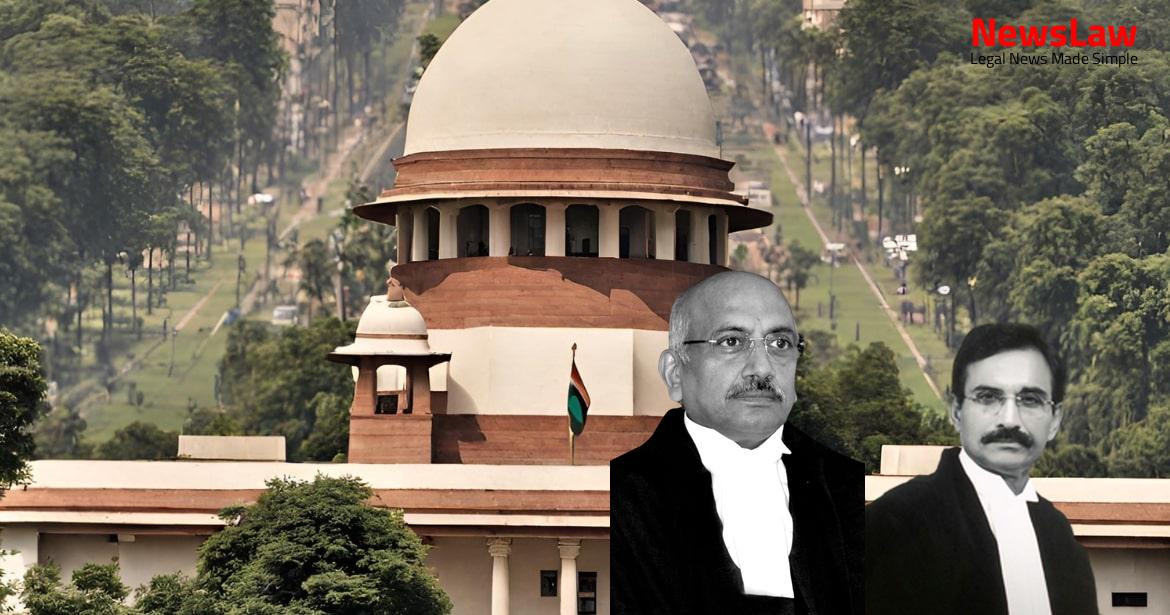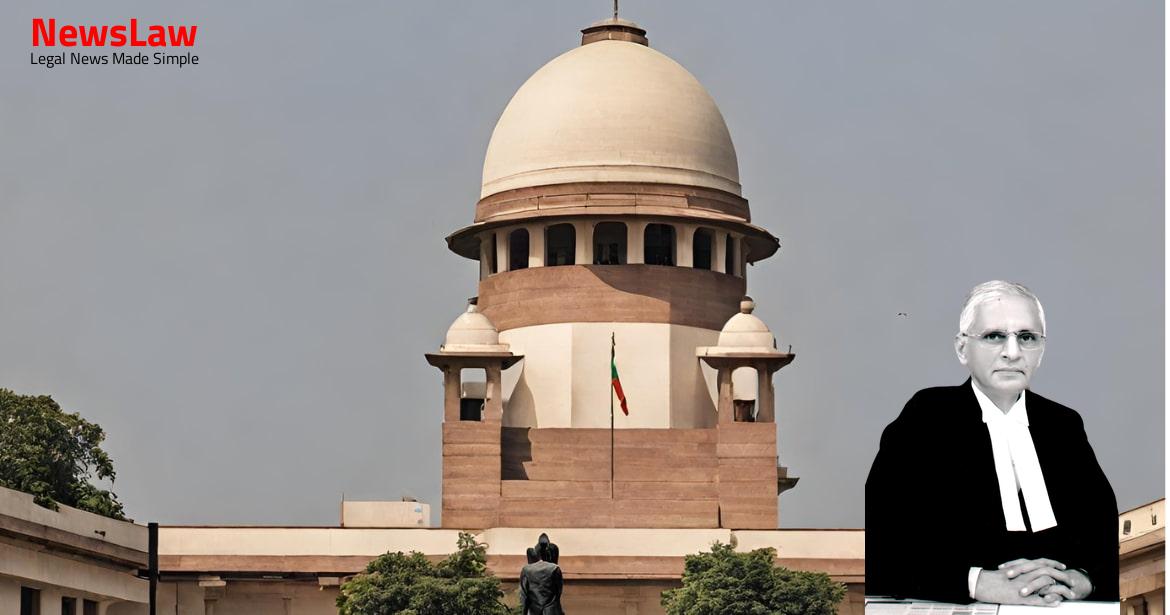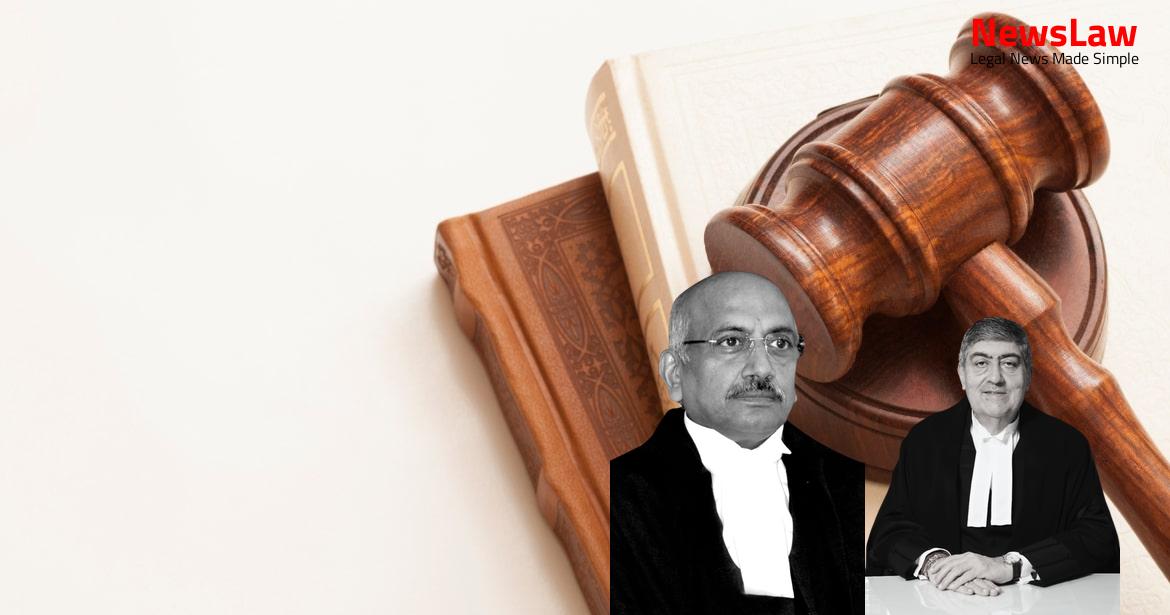In a recent landmark judgment, the Supreme Court of India delves into the jurisdiction of the Collector in the confiscation of vehicles, as highlighted in the case of State of Madhya Pradesh v. Madhukar Rao. The case has significant implications for property disposal under the Act, distinguishing between criminal proceedings and confiscation proceedings. Stay tuned to learn more about this crucial legal aspect.
Facts
- An FIR was lodged on November 17, 2015 for offences under Sections 60 and 72 of the Act and Sections 420, 467, 468 and 471 of the Indian Penal Code, 1860.
- On March 15, 2016, the Chief Judicial Magistrate passed an order of release of Santro Car upon application filed by Nisar Ahmed.
- A show cause notice was issued regarding the Santro Car meant for Nisar Ahmed’s son, as to why the car should not be confiscated.
- The owner of a seized truck is in appeal against an order confiscating the vehicle for violation of Sections 60 and 72 of the United Provinces Excise Act, 1910.
- The District Judge dismissed the appeal on August 3, 2017, leading to the confiscation and auction of the vehicles owned by Nisar Ahmed and the Appellant.
- Options to pay market value were provided to the Appellant and Nisar Ahmed for the release of their respective vehicles.
- Objections were filed by the Appellant on September 23, 2016, seeking release of the vehicle due to it being the sole means of livelihood and potential financial loss upon confiscation.
- The High Court’s order upholding the confiscation was challenged but remained unsuccessful.
- The investigation was conducted by Mr. Satyaveer Singh, Sub-Inspector.
- The High Court considered the special nature of the Act in relation to properties seized under it.
- Section 5 of the Criminal Procedure Code was referenced in determining the applicability of provisions regarding property disposal.
- It was concluded that the Act supersedes the Code in terms of property disposal under Section 72.
- The High Court’s decision was based on the order passed by the Supreme Court in the case of State (NCT of Delhi) v. Narender.
Also Read: Property Inheritance Dispute: The Legacy of Chhotabhai Ashabhai Patel
Arguments
- Collector does not have jurisdiction to pass an order of confiscation of the vehicle.
- Jurisdiction is argued based on the judgment in State of Madhya Pradesh & Ors. v. Madhukar Rao.
- Ms. Preetika Dwivedi argues that only the Magistrate conducting the trial is competent to pass an order of release of the vehicle since FIR has been registered for transportation of illicit liquor.
- Confiscation of the vehicle will take place after the completion of the trial by the Magistrate.
- Mr. Tanmaya Agarwal, argued that vehicle confiscation is a separate process from the prosecution of offenses under the IPC.
- Confiscation of vehicles involved in transporting illicit liquor is under the jurisdiction of the Collector as per the Act.
- The counsel cited cases like Yogendra Kumar Jaiswal & Ors. v. State of Bihar & Ors. and The State of Madhya Pradesh v. Uday Singh to support their argument.
Also Read: Lt. Col. Om Dutt Sharma vs. Ministry of Defence: OROP Entitlement for Army Postal Service Personnel
Analysis
- The power of release of property before any criminal court will not be available except for the order in respect of the distribution of sale proceeds.
- The power under Sections 451, 452, or 457 of the Code is inconsistent with the provisions of the Act regarding property disposal during and after trial.
- The Collector is exclusively empowered to order confiscation of things or animals, with the authority to sell them if needed, except for intoxicants.
- No appeal is provided for orders under sub-section (3) of Section 72 of the Act for seized things subject to wear and tear or natural decay.
- The Collector is authorized to sell seized things by public auction if they are subject to speedy wear and tear or natural decay.
- Confiscation of vehicles involved in liquor transportation is within the Collector’s exclusive jurisdiction as per the Act.
- Section 4 of the Code allows the Collector to order the sale of vehicles or animals even before a confiscation order is passed if it serves public interest.
- Confiscation of vehicles or things is solely vested with the Collector, with fines not exceeding market value imposed by the Collector alone.
- Provisions from the Act show that the Collector has exclusive jurisdiction over confiscation of vehicles and may order their sale if expedient in public interest.
- The Collector can release vehicles if deemed expedient in public interest or if subject to wear and tear or decay.
- Section 72 of the Act grants power to Excise Officers and Police Officers to investigate and seize articles and vehicles involved in criminal activities.
- The sale proceeds of seized items subject to wear and tear or natural decay are to be paid to the entitled person as per the Act.
- Section 72(6) allows the Collector to review orders issued under subsection (2) of the Act.
- Section 72(7) provides the right to appeal against confiscation orders to a judicial authority appointed by the State Government.
- No Magistrate can take cognizance under Section 70 of the Act without knowledge, suspicion, or a report from an Excise Officer.
- The distribution of sale proceeds after selling seized items is outlined in Section 72(4).
- Section 72(8) details the disposal of seized items subject to a prosecution, following the court’s order.
- Section 72(9) clarifies that a confiscation order by the Collector does not prevent additional punishment under the Act.
- The prosecution and punishment consequent to it are separate from the confiscation order by the Collector.
- Confiscation of property under Orissa Special Courts Act, 2006 and Bihar Special Courts Act, 2009 is independent of outcome of prosecution under Prevention of Corruption Act, 1988.
- Collector has authority to impose fine up to the market value of the seized property.
- Recent judgments like Uday Singh, State of Madhya Pradesh and Others v. Kallo Bai, Divisional Forest Officer and Another v. G. V. Sudhakar Rao confirm the distinction between criminal proceedings and confiscation proceedings.
- High Court’s order was found to be free from error.
- No grounds for interference in the present appeal were identified.
Also Read: Financial Capacity and Specific Performance: A Landmark Judgment by the Supreme Court Of India
Decision
- The High Court has decided the matter based only on the question of jurisdiction of the Collector to order confiscation.
- The matter is remitted back to the High Court for exercising power of judicial review over the order of confiscation by the Collector and as affirmed by the District Judge.
- The appeal is disposed of accordingly.
Case Title: MUSTAFA Vs. THE STATE OF UTTAR PRADESH
Case Number: C.A. No.-006438-006438 / 2019



